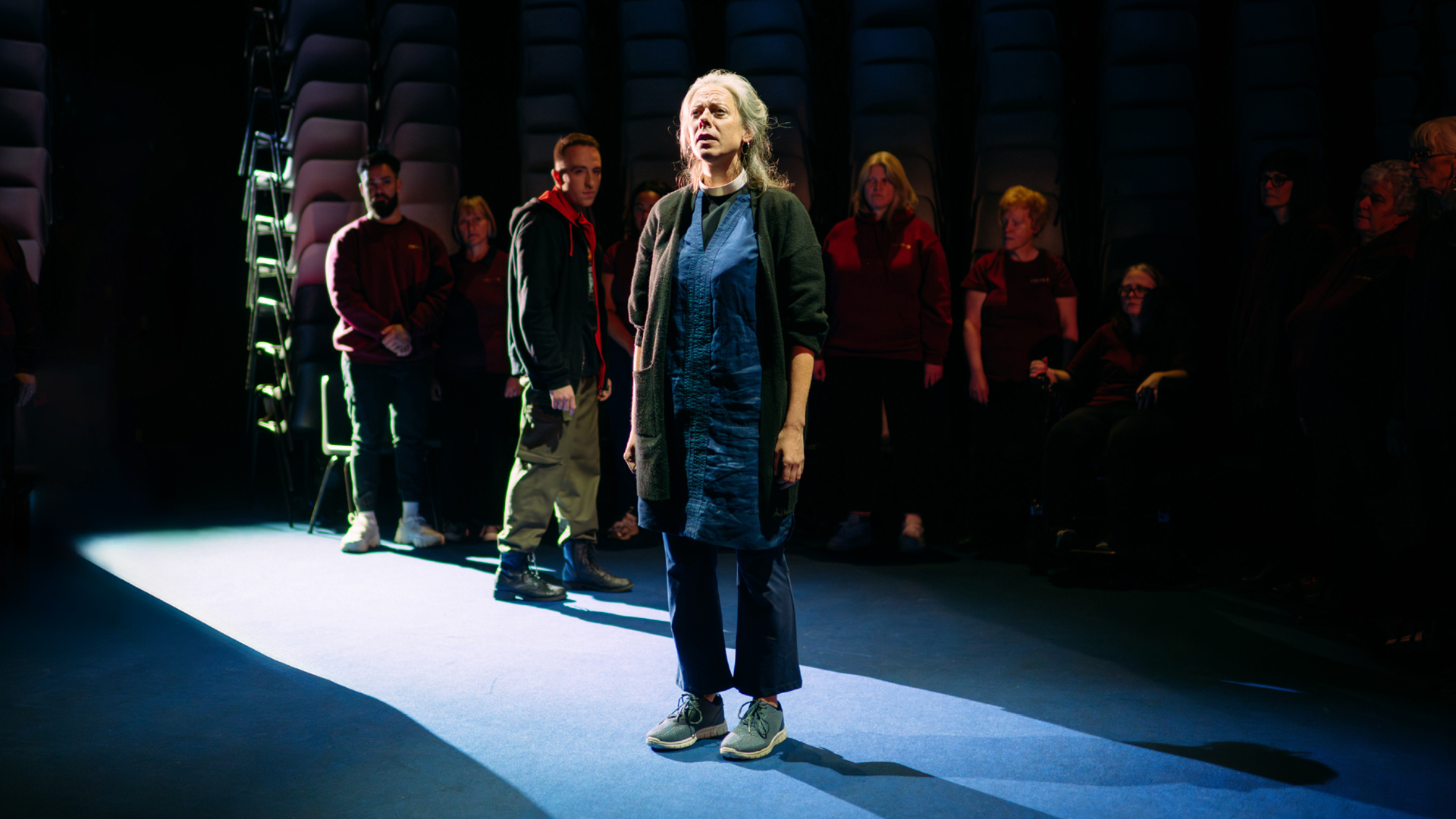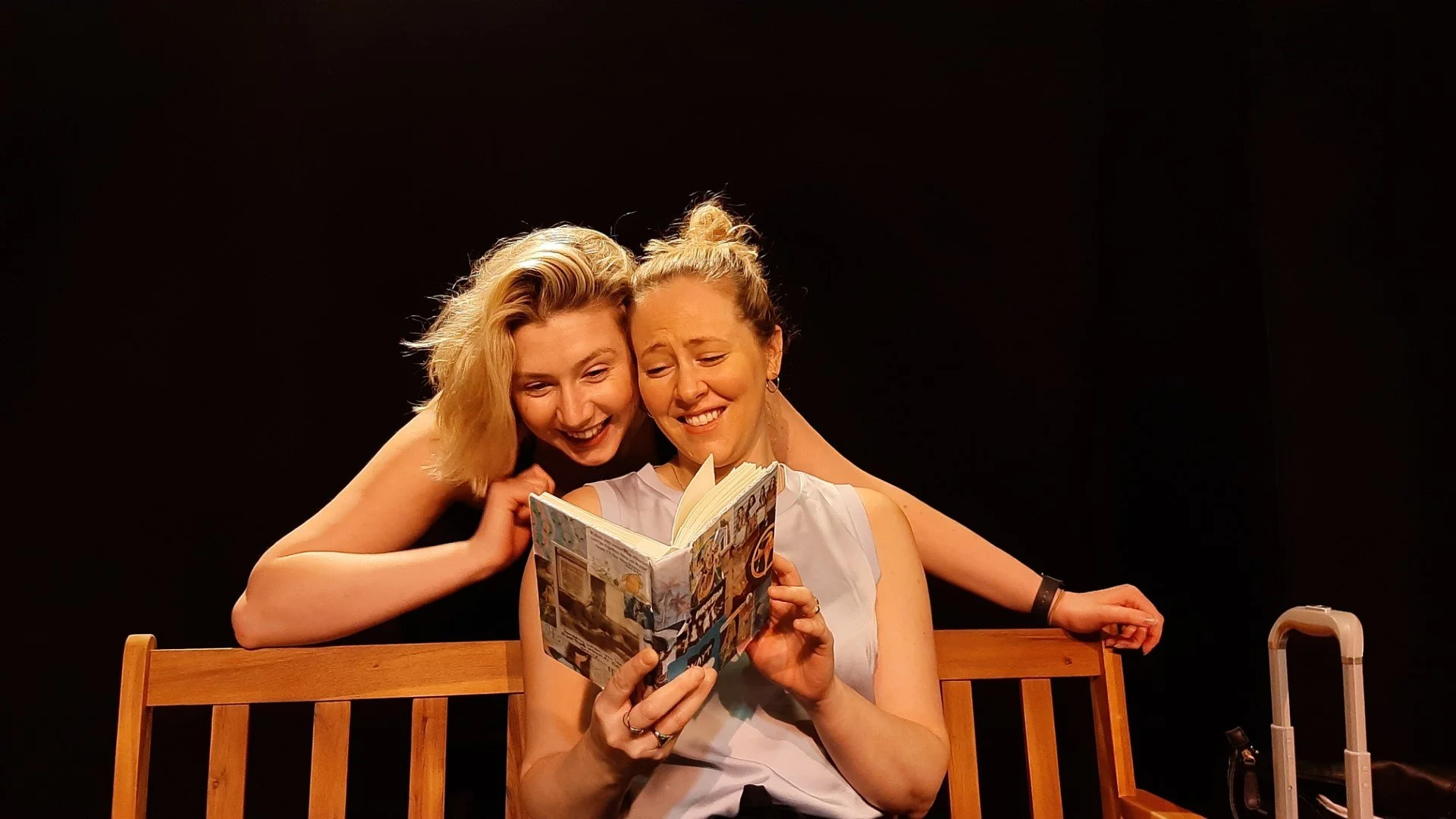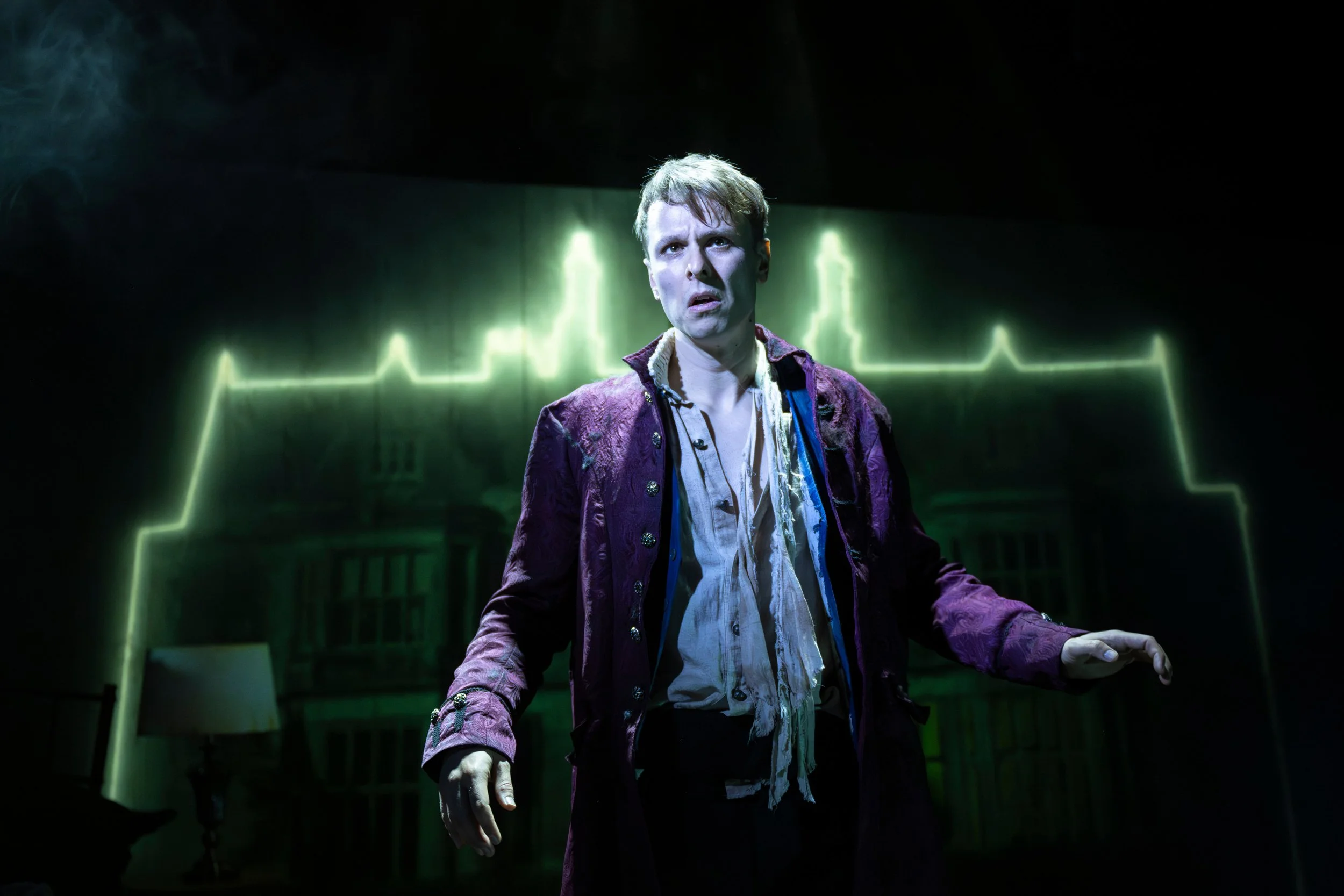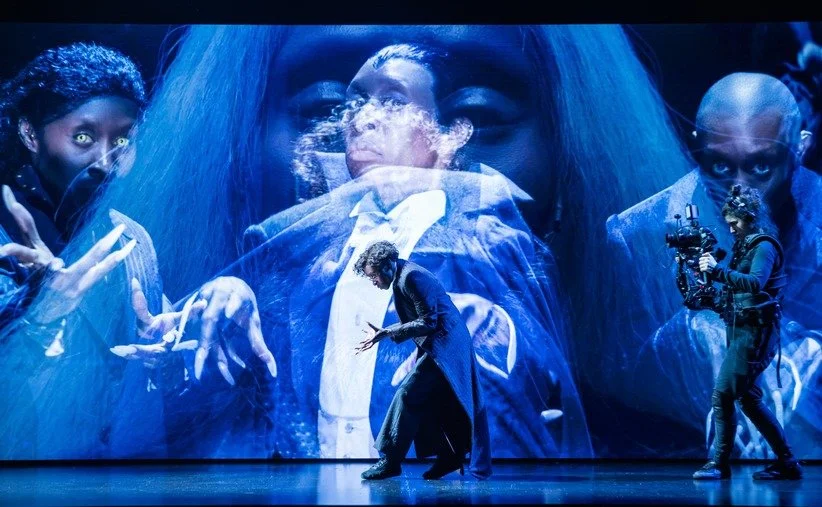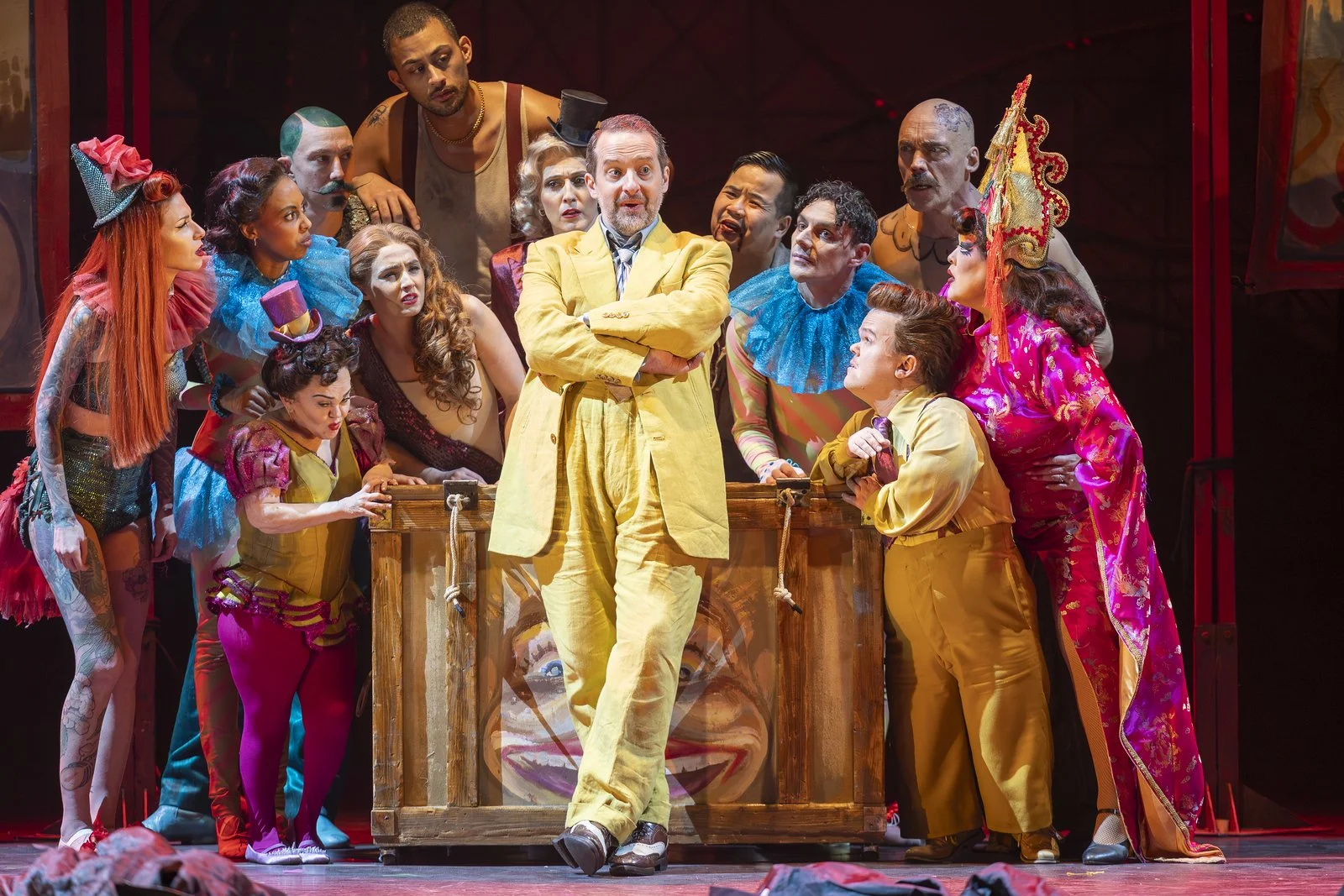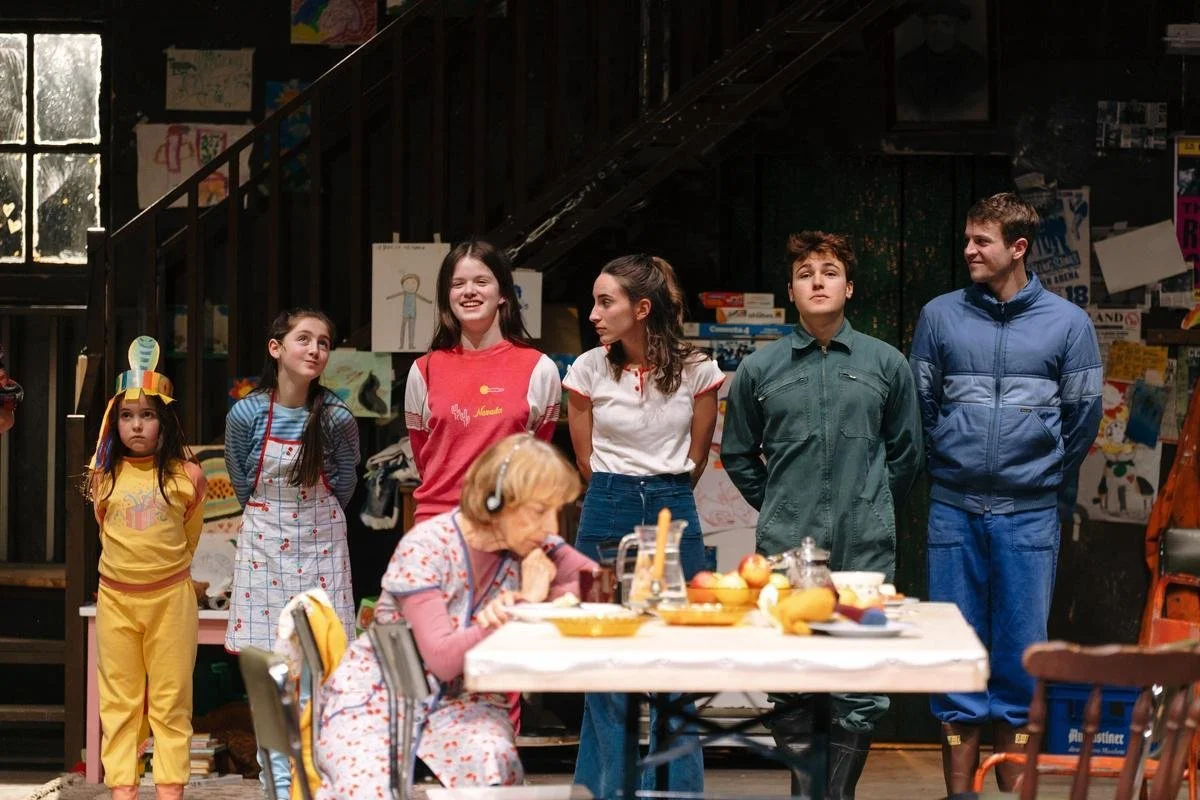Dr Freud Will See You Now, Mrs Hitler at Upstairs at the Gatehouse Review
Written by Cathie for Theatre & Tonic
Disclaimer: Gifted tickets in exchange for an honest review
Trigger Warnings: Antisemitism, Domestic Abuse, Violence, use of theatrical haze and flashing lights
Truth is often stranger than fiction, and Dr Freud Will See You Now, Mrs Hitler explores one of the strangest coincidences in history. When young Adolf Hitler suffered from nightmares and prolonged bedwetting, his mother, Klara, took him to their local doctor. Out of his depth, the doctor suggested Dr Sigmund Freud’s new clinic for children with nervous disorders in Vienna. Although Adolf’s father forbade it due to his strict conservatism, this play imagines a counterfactual history: What if Freud had met young Hitler? Could he have steered him away from becoming the tyrant Führer and the horrifying rise of the Third Reich? Or would nobody be able to turn him from this stygian path?
The story spans over 30 years, from Hitler’s childhood to his rise as Führer, but we witness this arc entirely through the eyes of Sigmund Freud. From the first encounter with a seven-year-old boy hiding under a table to Hitler’s later years as a struggling student and house painter working for the Freud family, the narrative traces the disturbing transformation of a child twisted by abuse into a man consumed by hate. Even during fleeting moments of warmth, Anna Freud’s innocent appreciation of his art, or Hitler’s desperate search for Freud’s approval, there’s an underlying sense of unease. His instinct to constantly overstep boundaries and blame others for his own failures is ever present. At every turn, he repays kindness with antisemitic vitriol, branding the Freuds and the art professors at college “thieving Jews” who stole his potential. Most poignant is that, despite glimmers of promise and a passion for art, nothing can divert Hitler from the abyssal path he chooses. He becomes a man incapable of receiving or giving love without interpreting it as theft.
Anna Freud, portrayed with powerful nuance by Ruby Ablatt, serves as narrator and emotional anchor. Her direct address to the audience, breaking the fourth wall at pivotal moments, brings chilling clarity to the unfolding tragedy in a clever and affecting framing. Isaac Bernier-Doyle’s direction is bold and precise. The ensemble cast maintains a terrifying chemistry throughout. Brendan Lyle and Neil Chinneck are especially striking in their dual roles as chilling SS officers and their earlier roles as the empathetic Otto Rank and Carl Jung. Nesba Crenshaw beautifully delivers a sharp and complex dual performance as both Frau Freud and Frau Hitler. Sam Mac is deeply unsettling as Hitler. His performance is excellent in layering malice, entitlement, and a desperate hunger for significance. It’s a harrowing performance that avoids caricature while never softening the character’s terrifying nature. As Sigmund Freud, Jonathan Tafler is magnificent and magnetic. His portrayal cleverly showcases equal focus towards analytical genius and paternal strength. He truly brings a inferno of gravitas to Freud’s intellectual curiosity and horror.
Hannah Danson’s set design is both minimal and symbolic. Towering banners printed with Freud’s letters to his family serve as both visual backdrop and thematic reminder of Freud’s looming presence as a father figure to Anna, to Hitler, and to the audience as the father of psychoanalysis. Sparse props, including the iconic couch, powerfully evoke a Vienna that initially thrives but over time is in decline psychologically, politically, and economically. Simon Jackson’s lighting design subtly darkens over time, casting longer shadows and visually echoing Hitler’s descent into hatred and the rising tide of fascism.
This play has been considered controversial since its inception over twenty years ago. Some in the audience questioned the purpose of a counterfactual story when real Holocaust survivors’ testimonies demand attention. London theatre is powerful and does and should represent stories of those who endured and fought against genocides and war across the world. Dr Freud Will See You Now, Mrs Hitler does not aim to replace survivor narratives. This play is an attempt to understand how hatred grows, how evil develops, and how the early signs of extremism can take root if left unchecked. “History doesn’t repeat itself but it often rhymes,” and monsters such as Hitler and the rise of the Third Reich do not bounce fully formed from the depths of Tartarus but evolve slowly in overlooked corners of our society, emboldened by apathy and silence. This play dissects those warning signs with haunting clarity. BAFTA award-winning writers Laurence Marks and Maurice Gran have created a disturbing and compelling drama which, at its heart, is an urge to understand the roots of antisemitism and how we can prevent it from taking over society again. Considering that Dr Freud died only two miles away in 1939, Chromolume productions chose a very poignant location in the Gatehouse theatre to stage this powerful production.
Overall, this was a fascinating example of counterfactual history. In exploring this dark “what if,” the play doesn’t seek to excuse or redeem Hitler. Instead, it forces us to confront the psychology of hatred and our responsibility to recognise it early. Throughout this play we not only see a profound glimpse into the field of psychology but also into the development of evil in an individual who constantly chooses hate. This is a truly brilliant play which explores the rising and damaging elements of fascism and its followers. If you enjoy profound drama, philosophical what-ifs and delving into the mind, then this is the show for you.
Running at Upstairs at the Gatehouse Theatre until 28th September
★★★★




